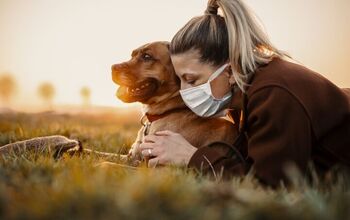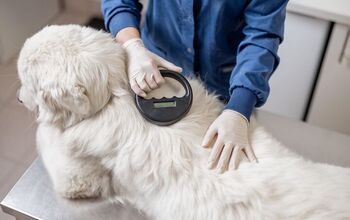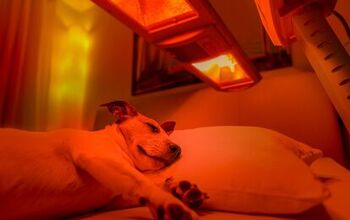What You Need To Know About Hookworms In Dogs

As pet parents, we love to indulge our furry best friends with the best – from toys and bedding to jackets and boots – nothing is too good for our pet. Similarly, we probably spend more time reading the ingredients on dog food packaging than on the foods we buy for ourselves and yet our pets will still decide that a stagnant puddle or dog poop on the neighbour’s lawn is equally appealing. This is where a vigilant approach to pet parenting steps in. It is crucial that owners recognize the causes and react swiftly to signs of a deadly parasite known as hookworm. Found in contaminated water and infected animal feces, it is clinically known as ancylostomiasis and it can be fatal if left unchecked.
Related: What Is Giardia In Dogs?
What Causes Hookworms in Dogs?
One of the most debilitating forms of canine worms is the hookworm. No more than one-quarter to one-half inch in length, these thin parasites attach themselves to your pet’s small intestine, sucking blood and tissue fluids.
Adult dogs become infected through the consumption of infected animals, direct skin penetration (typically through pads of the feet); ingesting larvae from contaminated soil or feces, and in the case of puppies, through their mother’s placenta prior to birth or through her milk after birth.
Related: The 411 On Colitis In Dogs
Once infected, larvae migrate through your dog’s lungs to their intestines where they mature into adult hookworms and begin to lay eggs. Within 14 to 21 days, these eggs are expelled via your pet’s feces where they contaminate the surrounding soil. While warmer climates provide a more ideal incubation environment, these eggs can hatch anywhere within 48 hours of being expelled from your pet and the larvae become infectious within five to seven days.
Symptoms of Hookworms in Dogs
Your pet can show visible signs of a hookworm infestation as quickly as 10 days after exposure. He may seem “unhealthy” – his appetite will be off, he will drop weight and due to blood loss, the linings of his nostrils, lips, and ears will be pale. If the hookworm larvae get into his lungs, he will also have a cough. For owners who allow their pets the run-of-the-yard to do their business, take the time to check his stools. Hookworm presence will result in a dark and tarry stool, diarrhea, or even constipation. Once noted, it’s time to get your buddy to the vet ASAP!
For puppies, the first indication is the bloody diarrhea –a symptom that requires immediate vet intervention as progressive blood loss may cause rapid deterioration and ultimately death.
Often, dogs who recover from hookworms become carriers as the larvae can encyst in their tissues. In this case the previously mentioned symptoms will reappear during times of stress or illness.
Treatment Options and Prevention
A full and proper diagnosis must be made by your vet and can only be done by a microscopic examination of your pet’s feces. Because it can take from 14 to 21 days for the eggs to appear in his stool there may be a period of time during which the results test negative. In these instances, an interim diagnosis must be made based on his symptoms so that a form of treatment can begin.
For mild cases it will likely include an oral de-wormer that is repeated over one-two weeks. This will kill not only present but future larvae as they hatch in your pet’s intestine and will be followed with a fecal examination to confirm the absence of parasites.
In some instances, nutritional and iron supplements may also be necessary and in cases where severe anemia is at play, your pet may need to be hospitalized for fluid therapy and blood transfusions.
Steps to preventing your pet from becoming infected include maintaining an as-clean-as-possible living/roaming environment. A regular poop-and-scoop approach to your backyard as well as removal of standing water can go a long way in preventing hookworms. But the reality is that our pets are not always at play in a controlled environment. As a result, periodic stool checks with appropriate deworming will identify and prevent the serious consequences of hookworms that have gone unchecked. In addition, the monthly oral medications available through your vet’s office can prove highly effective in preventing hookworms and other parasites.
Mary Simpson is a writer and communications professional from Port Credit, Ontario. A soft touch for anything stray, she shares her century home with an eclectic collection of rescues that include orange tabby Chico, tuxedo Simon, and jet black Owen. She enjoys running, politics, exploring the wine regions of Niagara and is an avid supporter of the “shop local” movement.

Sharing space with three seriously judgy Schnoodles and a feline who prefers to be left alone. #LivingMyBestLife
More by Mary Simpson
























